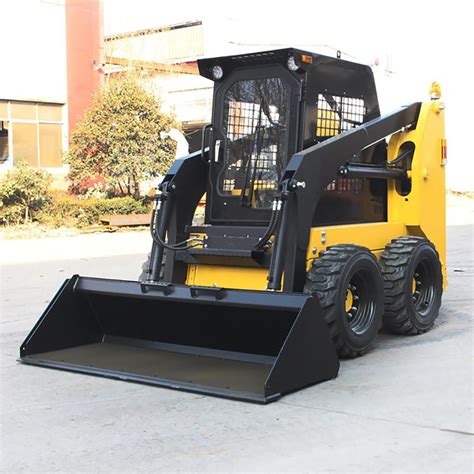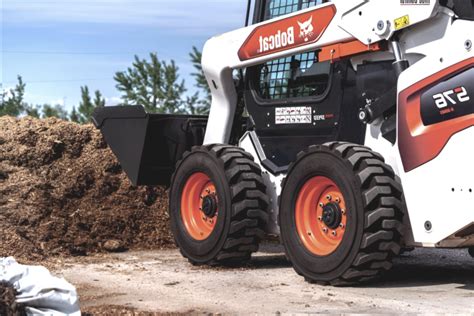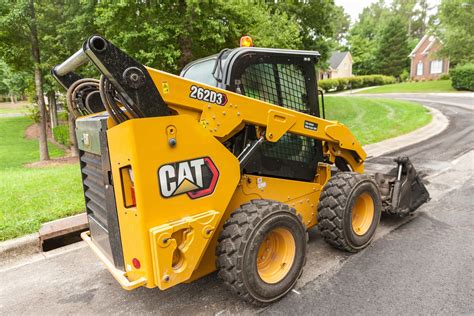what is better tracks or tires on a skid steer New tracks generally cost about 30% more than tires, but you won't need to replace them as often. How long do rubber tracks last on a skid steer? In the neighborhood of 1,200 to 1,600 hours, depending on worksite conditions. Steel tracks, known for their durability, last even longer. To maintain tracks, clean out and . See more Browse a wide selection of new and used DEERE 17 Excavators for sale near you at MachineryTrader.com
0 · tracked or wheeled skid steer
1 · track vs wheeled skid steer
2 · skid steer tires clearance
3 · skid steer or track loader
4 · skid loader tracks over tires
5 · mounted skid steer tires
6 · best tracked skid steer
7 · aggressive skid steer tracks
Since the acquisition, Kato’s Compact Excavator Sales division has been selling mini excavators, compact track loaders, rubber-tired skid steers, and crawler carriers in North and South America. MachineryTrader.com lists dozens of new and used Kato machines available for sale, including all-terrain cranes , rough-terrain cranes , and crawler .
New tracks generally cost about 30% more than tires, but you won't need to replace them as often. How long do rubber tracks last on a skid steer? In the neighborhood of 1,200 to 1,600 hours, depending on worksite conditions. Steel tracks, known for their durability, last even longer. To maintain tracks, clean out and . See moreMost tracked skid steers come with either rubber or steel tracks, and there are advantages and disadvantages to both. Use rubber tracks . See moreIf you're struggling with the tracks vs wheels question, consider another option: You can add over-the-tire skid steer tracks to each wheel of the skid steer, making the machine useful on . See more The primary advantage is lower ground pressure and stable operation over .
The choice between wheels and tracks on a skid steer depends on the specific .Sep 18, 2021
The skid-steer and the compact track loader (CTL): two powerful little . Tracks on a skid steer provide superior traction and stability, and can . Here’s a comparison and breakdown for skid steers with tracks and wheels and . Skid steer tracks effectively provide you with a larger and more stable footprint .
In this blog post, we will compare skid steer tracks vs tires and help you decide which one is . Learn the pros and cons of skid steer tracks vs. tires for different job conditions and terrains. Find out the cost, maintenance and performance of rubber and steel tracks, and how to add over-the-tire tracks to a wheeled skid steer. The primary advantage is lower ground pressure and stable operation over uneven surfaces, as the tracks provide more contact with the ground than four independent tires. The choice between wheels and tracks on a skid steer depends on the specific application. Wheels provide better speed and maneuverability on smooth surfaces and are ideal for tasks like loading and material handling.
Learn the pros and cons of skid steer tracks and tires for different terrains and applications. Find out about the compromise solution of slip-on tracks and where to get them from NAPA AutoCare.
tracked or wheeled skid steer

track vs wheeled skid steer
The skid-steer and the compact track loader (CTL): two powerful little workhorses designed to perform the same basic functions—so what’s the difference? Hint: the difference is based on the working conditions each is best suited for. Tracks on a skid steer provide superior traction and stability, and can essentially “float” on muddy surfaces where wheeled units are likely to sink. Rubber tracks are prized for their affordability and smoother handling, while steel tracks offer heightened durability and traction.

Here’s a comparison and breakdown for skid steers with tracks and wheels and how they fare on different terrain, so keep this in mind as you shop. Tracked Skid Steers Superior Traction: Tracked skid steers excel on challenging terrains like mud, snow, and loose gravel since they’re designed with a continuous track for improved grip and .
Skid steer tracks effectively provide you with a larger and more stable footprint which can stabilize the skid steer and help prevent tipping when working at construction sites with uneven ground. This may be a good consideration when operating large, heavy attachments on challenging terrain.In this blog post, we will compare skid steer tracks vs tires and help you decide which one is right for you. Tracks. Skid steer tracks are ideal for working on rough, uneven, or soft terrain, such as mud, sand, snow, or gravel. They provide better traction, stability, and flotation than tires, allowing you to navigate challenging conditions . With an over-the-tire track, which can be put on and taken off your skid steer loader in about an hour, you have the option to choose between tracks or tires at the time you put the machine to work. According to Wright, OTT tracks are .
Learn the pros and cons of skid steer tracks vs. tires for different job conditions and terrains. Find out the cost, maintenance and performance of rubber and steel tracks, and how to add over-the-tire tracks to a wheeled skid steer. The primary advantage is lower ground pressure and stable operation over uneven surfaces, as the tracks provide more contact with the ground than four independent tires. The choice between wheels and tracks on a skid steer depends on the specific application. Wheels provide better speed and maneuverability on smooth surfaces and are ideal for tasks like loading and material handling.
Learn the pros and cons of skid steer tracks and tires for different terrains and applications. Find out about the compromise solution of slip-on tracks and where to get them from NAPA AutoCare. The skid-steer and the compact track loader (CTL): two powerful little workhorses designed to perform the same basic functions—so what’s the difference? Hint: the difference is based on the working conditions each is best suited for. Tracks on a skid steer provide superior traction and stability, and can essentially “float” on muddy surfaces where wheeled units are likely to sink. Rubber tracks are prized for their affordability and smoother handling, while steel tracks offer heightened durability and traction.
Here’s a comparison and breakdown for skid steers with tracks and wheels and how they fare on different terrain, so keep this in mind as you shop. Tracked Skid Steers Superior Traction: Tracked skid steers excel on challenging terrains like mud, snow, and loose gravel since they’re designed with a continuous track for improved grip and . Skid steer tracks effectively provide you with a larger and more stable footprint which can stabilize the skid steer and help prevent tipping when working at construction sites with uneven ground. This may be a good consideration when operating large, heavy attachments on challenging terrain.In this blog post, we will compare skid steer tracks vs tires and help you decide which one is right for you. Tracks. Skid steer tracks are ideal for working on rough, uneven, or soft terrain, such as mud, sand, snow, or gravel. They provide better traction, stability, and flotation than tires, allowing you to navigate challenging conditions .

skid steer tires clearance

brush cutter open cab skid steer
Compact or mini excavators are built for digging in confined jobsites. Most models feature a hydraulic-powered arm attached to a track-mounted chassis. Construction, landscaping and utility professionals rely on small excavators to work where larger machines can’t fit.
what is better tracks or tires on a skid steer|mounted skid steer tires